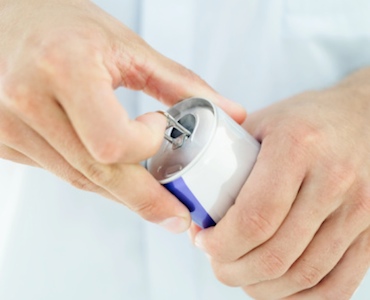
Canadian Beverage Association defends energy drinks
By By Carol Neshevich
Food Safety Beverages caffeine Canadian Beverage Association energy drinksA recent report links traumatic brain injury in teens to energy drinks, but the CBA is not convinced.

By Carol Neshevich
A recent study has found a link between energy drink consumption and traumatic brain injury in teens, but the Canadian Beverage Association is defending the popular caffeinated beverages.
The report, published in the journal PLOS ONE on Sept. 16 titled “Energy drinks, alcohol, sports and traumatic brain injury among adolescents,” concluded that teens who reported a traumatic brain injury in the past year were seven times more likely to have consumed at least five energy drinks in the past week than those without a history of traumatic brain injury.
The researchers also found that teens who reported sustaining a traumatic brain injury within the past year were at least twice as likely to have consumed energy drinks mixed with alcohol than teens who reported sustaining a traumatic brain injury more than a year previously.
Data for the study was collected by the Centre for Addiction and Mental Health (CAMH)’s 2013 Ontario Student Drug Use and Health Survey. Approximately 10,000 students ages 11 to 20 participated in the self-administered, in-classroom survey.
The Canadian Beverage Association, however, responded to this study with a defence of energy drinks in an official statement: “The study published today cannot and does not show a causal link between energy drinks and adverse health outcomes. Energy drinks are non-alcoholic beverages which, in Canada, contain approximately half the caffeine of an equivalent-sized cup of drip coffee. According to Health Canada, 93 per cent of all caffeine consumed by Canadians comes from coffee and tea.”
The statement continued, “This year, the European Food Safety Authority (EFSA) confirmed the safety of energy drinks and their ingredients. EFSA concluded in its risk assessment that other typical ingredients of energy drinks do not affect the safety of caffeine consumption from those drinks, and that caffeine can be safely consumed in conjunction with physical exercise under normal conditions. This authoritative body’s opinion clearly demonstrates that there is no scientific justification for energy drinks to be treated any differently than other contributors to daily caffeine intake.”
Print this page